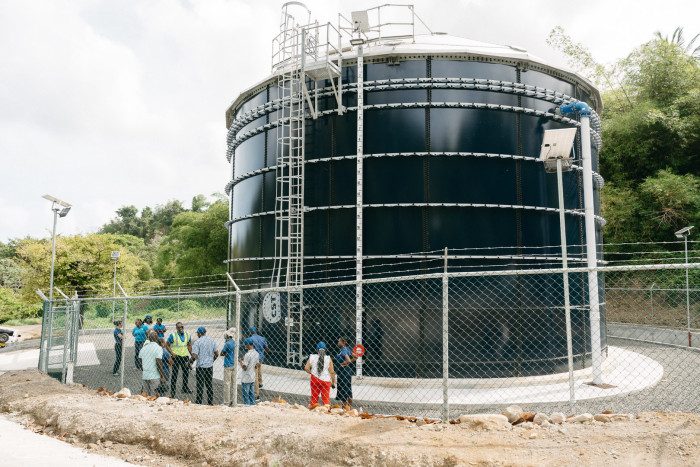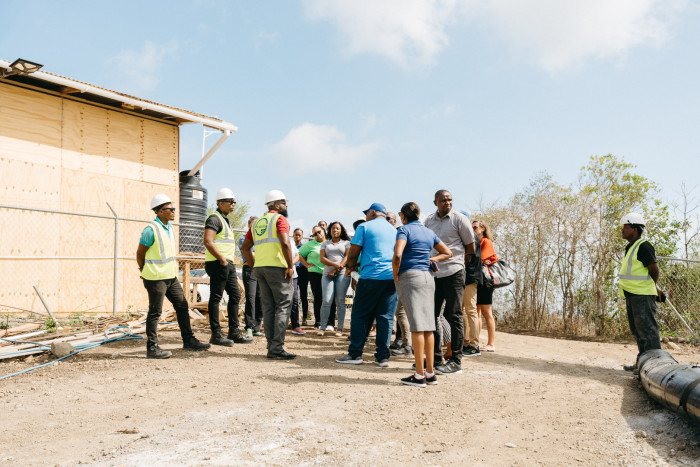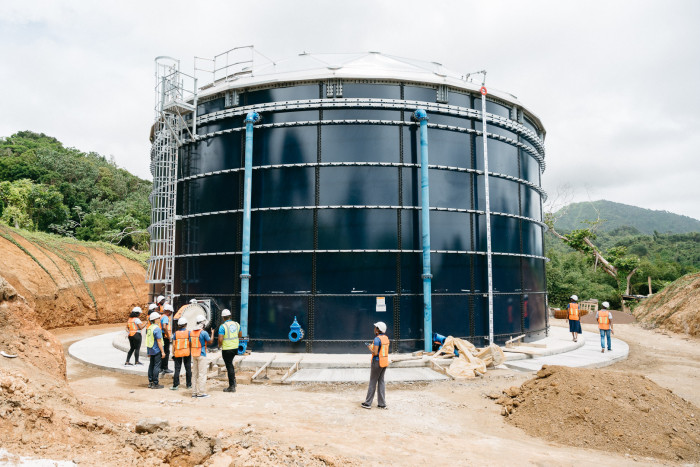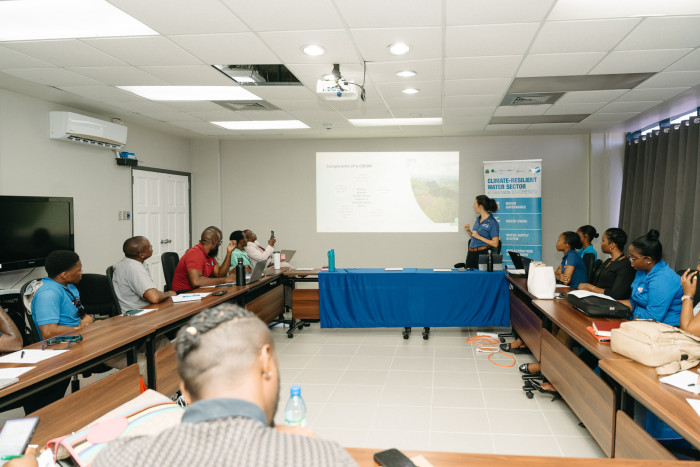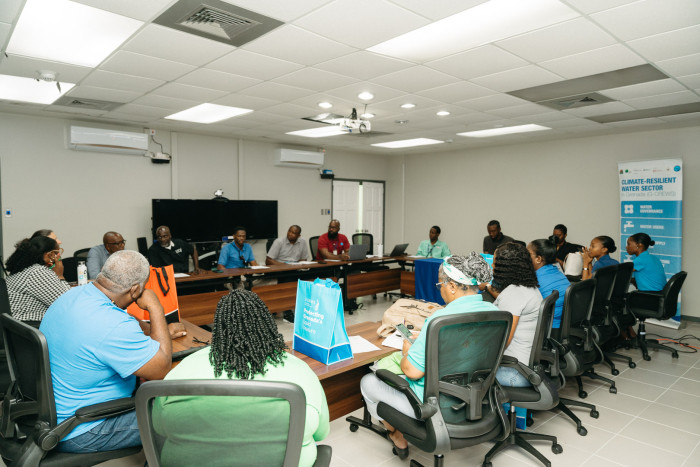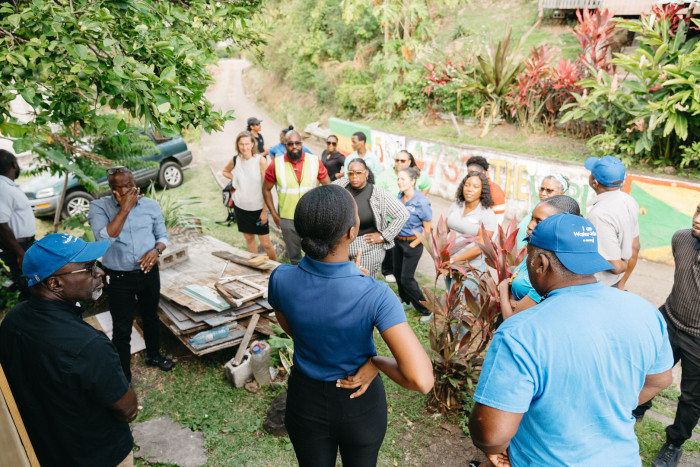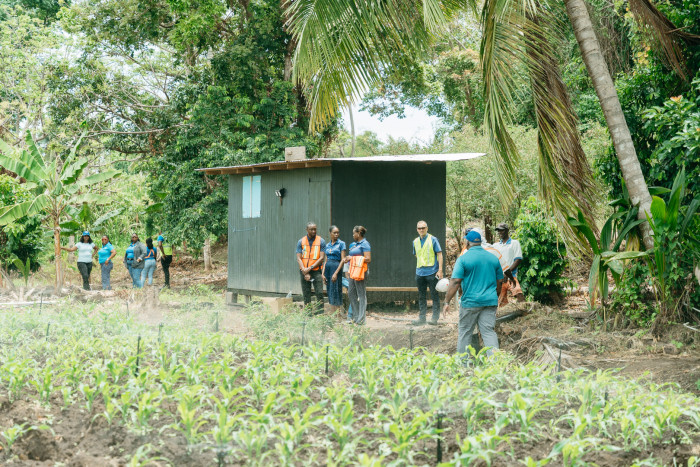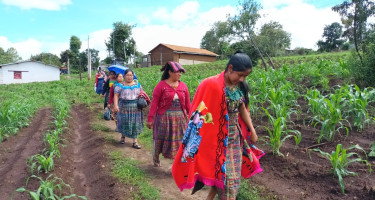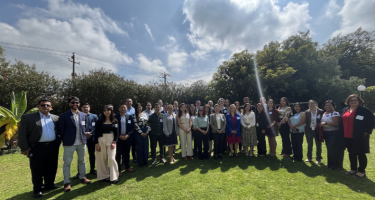G-CREWS shares its successes and lessons learnt with regional experts from St. Kitts and Nevis, St. Lucia and OECS
In response to the growing climate challenges across the Caribbean, the Climate-Resilient Water Sector in Grenada (G-CREWS) project continues to serve as a model for regional replication, with a focus on enhancing water resilience. A recent peer-to-peer review and study trip offered a unique opportunity to engage in a collaborative exchange of knowledge, strategies, and best practices aimed at strengthening climate resilience in the water sector.
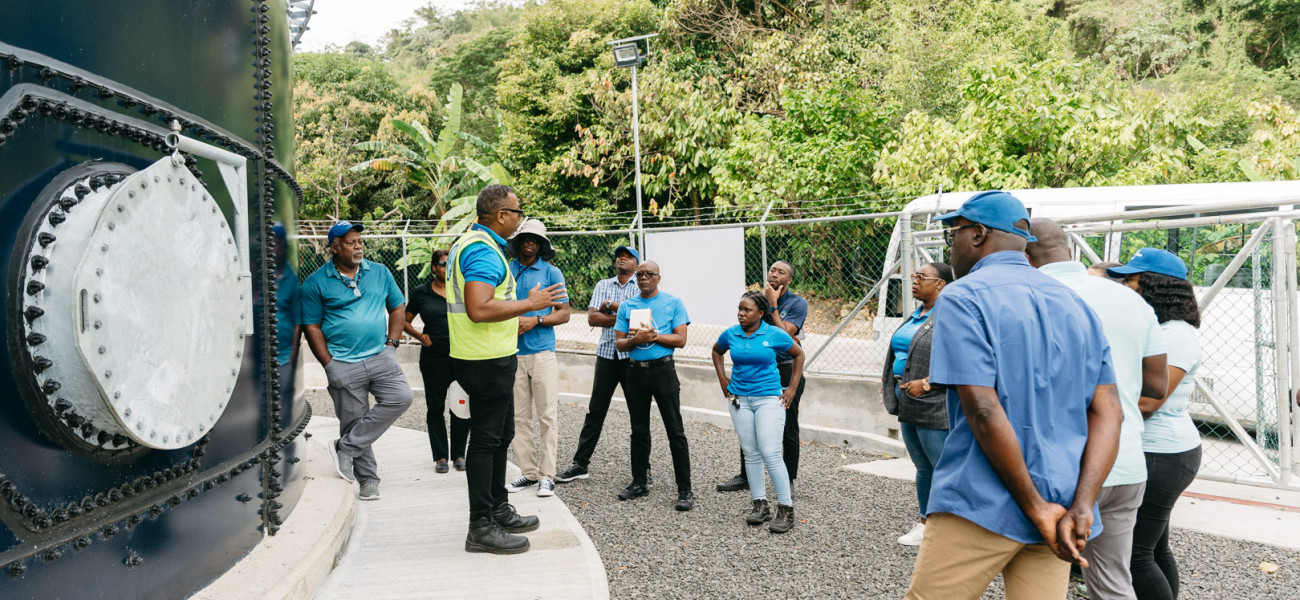
Study tour participants next to Tufton Hall tank in Grenada. © G-CREWS project
The study trip brought together key stakeholders from the Federation of Saint Christopher and Nevis, Saint Lucia, and the Organization of Eastern Caribbean States (OECS) to explore the successes of the G-CREWS project and identify opportunities for scaling similar initiatives across the Caribbean. During the trip, participants observed firsthand the implementation of water resilient strategies, engaged with project stakeholders, and assessed the effectiveness of the project as a model for addressing the region's pressing climate challenges.
Director of the Water Resource Management Agency in St. Lucia Jason Ernest expressed his appreciation for the study tour as it is expected to provide critical insights that will inform the preparation of their concept note, which is currently in the draft stages for submission to the Green Climate Fund (GCF).
“ Coming out, looking at the terrain, [it is] similar in terms of the complexities, putting up the infrastructure, where the treatment plants are [located], where the sources are, looking at the storage capacity, what are the plans for the future in terms of maintenance. These are very interesting and important for us in St. Lucia as well. ”
Director of the Nevis Integrated Water Resource Management Unit Mr. Floyd Robinson highlighted the engagement with the public and the civil works as two of his takeaways.
“ One of the takeaways for me has to do with the public relations and communication with the public. That aspect of the project is really fantastic. On civil work, it is really magnificent work. These tanks too are absolutely wonderful, we do have a few of them on Nevis. And just the whole way [G-CREWS] is going about the project, the implementation has really been mind opening for me. A number of ideas we are going to take back and when our project comes, we will definitely have something to improve on in Nevis. ”
The study trip also supported the strengthening of existing cooperative frameworks, such as the Regional Climate and Water Resource Community (RCWARC), established under the G-CREWS project in 2022. Head of Project, GIZ (G-CREWS) Ms. Marion Geiss says the RCWARC ensures knowledge sharing with regional countries.
“ Since we planned and executed the G-CREWS project, we have come across a lot of challenges and lessons learnt and it is important that we share it with other nations in the OECS. With that we showcase how a GCF and IKI funded project can actually be used to replicate within their concept proposal writing that they are currently doing. ”
The G-CREWS peer-to-peer review and study trip represents a critical step toward achieving long-term climate resilience in the Caribbean particularly for the water sector. By focusing on regional collaboration and mutual learning, the initiative empowers countries like the Federation of Saint Christopher and Nevis, Saint Lucia, and the OECS to implement sustainable water resilience projects that will help safeguard their communities and natural resources for future generations.
With G-CREWS being a model for climate resilience in the water sector, the success of the study trip highlighted the importance of regional cooperation in exploring solutions to addressing the shared climate challenges the Caribbean faces.
The G-CREWS project is jointly financed by the Green Climate Fund (GCF) and the German Federal Ministry for the Environment, Nature Conservation, Nuclear Safety and Consumer Protection (BMUV) under its International Climate Initiative (IKI) and the Government of Grenada. The project aims to enhance climate resilience in Grenada's water sector through a comprehensive transformation at various levels, fostering a paradigm shift for overall national resilience.
- Country: Grenada, Saint Kitts and Nevis, Saint Lucia
- Project:
- Contact:
